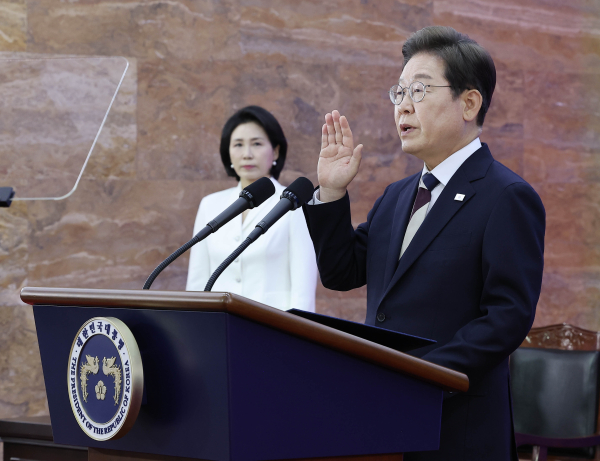Just hours after his surprise election victory, South Korea’s new president Lee Jae-myung took the stage in front of the National Assembly on Wednesday and made a solemn promise: “I will unite the people.”
With 61-year-old Lee winning 49.4% of the vote in a snap election, his victory was seen as a strong rejection of rival Kim Moon-soo—who represented the same party as the ousted former president, Yoon Suk Yeol.
A Presidency Born from Crisis
The snap election came in the wake of an extraordinary political breakdown. Former president Yoon, in a stunning overreach, attempted to impose martial law last December—triggering months of chaos and eventually leading to his impeachment. That moment shook the country, and for many South Koreans, this election became a referendum on the very state of democracy.
President Lee now steps into office not only with a mandate to heal a deeply divided nation, but also with the complex diplomatic task of managing South Korea’s alliance with the United States—where President Donald Trump’s unpredictable foreign policy looms large.
“Never Again”: Lee’s Defining Pledge
In a direct reference to his predecessor, President Lee declared: “Never again will democratic institutions be threatened.” He vowed to be a president who ends the politics of division.
The symbolism of the moment was not lost on anyone. Just six months earlier, Lee had famously scaled the walls of the National Assembly to vote against Yoon’s declaration of martial law. Now, standing in that same place as the country’s leader, he blamed South Korea’s recent political turmoil on “factions that have no interest in improving people’s lives.”
He pledged to build a “flexible and pragmatic government” and announced the immediate launch of an emergency economic task force to deal with the country’s ongoing financial difficulties.
A Comeback Fueled by Public Outrage
Lee’s rise to the presidency marks a remarkable political comeback. He has weathered corruption probes, family scandals, and multiple controversies. Yet political analysts agree: this win was not necessarily about Lee himself—it was about what he represented.
“The people judged the December 3 martial law incident as a betrayal of democracy,” said National Assembly Speaker Woo Won-shik. “This election was about restoring democratic values. The results clearly reflect the public will.”
High Hopes, Deep Wounds
Dozens of Lee supporters gathered outside the National Assembly on inauguration day, many staying overnight to catch a glimpse of their new president. One supporter told the BBC: “I’m so happy he was elected. I believe he’ll keep his promises and create a fairer world—where those who do wrong face the law and justice is upheld.”
Another added: “Under Yoon, I felt like the country was falling apart. Everyone around me was struggling. But now... I feel so happy.”
But as the inauguration buzz fades, the hard reality kicks in. Lee still faces a trial in the Supreme Court on charges of violating election law. The court delayed proceedings to avoid influencing the election—yet a conviction could have barred him from running altogether.
Under current law, a sitting president cannot be prosecuted for criminal offenses unless the charges involve insurrection or treason. Still, the legal cloud remains.
Division That Won’t Disappear
Beyond the courtroom, Lee’s toughest challenge lies in bringing unity to a nation still seething with anger. Despite the ruling party’s defeat, Yoon retains a loyal and loud support base—especially among young men in their 20s and 30s, and older conservative voters.
Many of them continue to defend Yoon’s actions, arguing his martial law declaration was justified to protect the country. Some even promote conspiracy theories about election fraud, insisting the conservative party was a victim.
Now that Yoon has exited the political stage, speculation is growing over who will become the new figurehead for his supporters. All eyes are on Lee Jun-seok, the 40-year-old former party leader who entered the race but withdrew on election night after poor polling results.
The Rise of Lee Jun-seok—and the Politics of Anti-Feminism
Lee Jun-seok’s appeal lies largely in his anti-feminist messaging, which resonates strongly with disaffected young male voters. This echoes Yoon’s earlier strategy, where gender equality was weaponized as a wedge issue during the 2022 campaign.
In fact, voter turnout among men in their 30s was unusually high in this election—an indication that candidates like Lee Jun-seok struck a chord. The result? South Korea recorded its highest voter turnout since 1997, with a stunning 79.4%.
A Nation Watching, A Leader Tested
So now, President Lee Jae-myung inherits not just a country, but a boiling pot of public frustration, political division, and lingering mistrust. His mission? To turn that anger into hope.
How he does it—and whether he can—will be closely watched, not just in South Korea, but around the world.










No comments:
Post a Comment